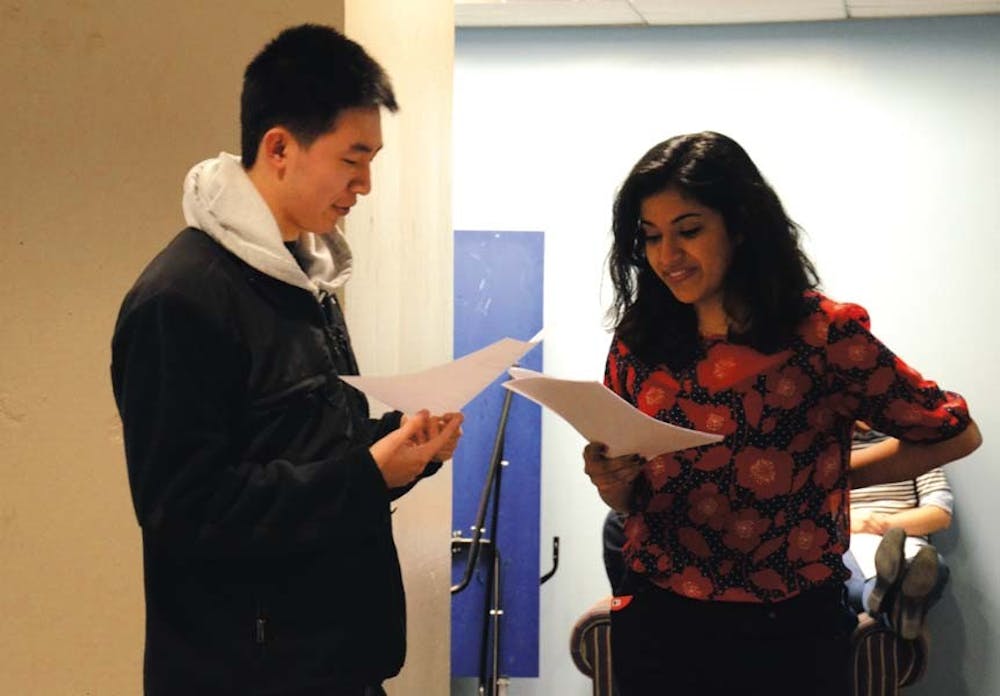
Last night, Penn Sangam asked a roomful of students an unusual question: could they really make an arranged marriage work?
During its “Speed Marriage” event, held in Rodin Underground, Sangam — a pan-Asian student discussion group — hoped to focus on the “sensitive topic of arranged marriage,” said College freshman Aashish Lalani, co-chair of special events for Sangam.
Over the course of about 90 minutes, the group’s approach to this topic grew a little less academic and a little more immediate. Each participant was given a list of questions and paired with a stranger — his or her “spouse” for the exercise.
The questions started off as simple: Favorite band? Favorite cereal? Mac or PC?
From there, however, the conversations turned to addressing the big decisions that could determine a couple’s failure or success: Where do you want to live? Do you plan to have children? How would you feel about combining bank accounts?
Even in a group of people perhaps too young to have acted yet on these decisions, the responses frequently proved divisive.
With everyone gathered in a circle after the “dates” had ended, the reports on these hypothetical marriages began. One couple, for example, proved incompatible in the end: neither wanted to be married to someone with the same career, but both were pre-med.
In some cases, the problems were somewhat less concrete.
“We didn’t have that spark,” College and Engineering junior Chris Chow said of his and his partner’s “marriage.”
As the discussion continued, it became clear that for many students in the room, arranged marriage was neither a foreign nor unimaginable concept.
Lalani explained that his “cousins have had arranged marriages…[they’d] grown up in America, but they’re okay with it. They’d come to appreciate why arranged marriages are acceptable.”
Others shared similar stories of family members who had not been raised in places where arranged marriage was common but had nevertheless carried on the tradition.
Students with personal experience also mentioned that arranged marriages fall on a spectrum, and that not all arranged marriages were necessarily as blind as those simulated in the activity.
Wharton sophomore Alex Lee mentioned that in some cases, the person to be married can “date several different suitors and have some say in who you want to marry.”
Toward the end of the post-activity discussion, Lalani asked, “So when does love emerge in an arranged marriage?”
One student answered that maybe couples learn to fall in love as their marriages progress. Another suggested that arranged marriage is a matter of priorities and of “valuing your family more than your spousal unit.”
Others said that they would never marry someone of whom their parents disapproved, and that arranged marriages could actually be a product of not wanting to leave a specific cultural group.
Despite the difficulties that emerged in a fake, hour-long marriage, many saw that there was real value to the tradition. After all, Lalani said as the activity drew to a close, two thirds of the world still practices some sort of arranged marriage.
This article has been revised to reflect the accurate spelling of Aashish Lalani’s name and the correct attribution of a quote to College and Engineering junior Chris Chow.
The Daily Pennsylvanian is an independent, student-run newspaper. Please consider making a donation to support the coverage that shapes the University. Your generosity ensures a future of strong journalism at Penn.
DonatePlease note All comments are eligible for publication in The Daily Pennsylvanian.







